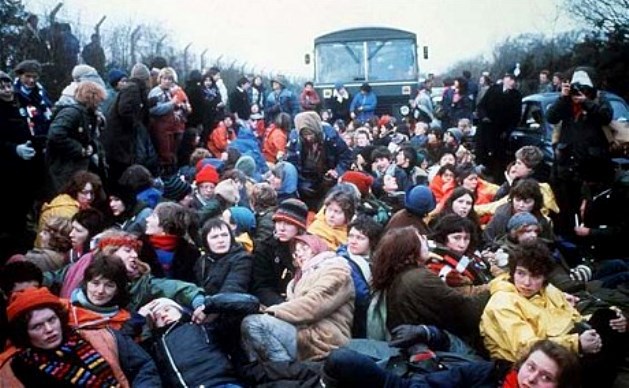THE
HARRODS BOMBING
Not content with a
conventional war in the Falklands and an impending nuclear world war,
Thatcher was now declaring war on trade unions; using the power of
government and the courts to cripple them legally and financially and
then using the police to crush them physically. And just to round
things off there was still the matter of the war in Northern Ireland.
“It's all very
simple while you keep the war vocal,” as Crass had declared a
few years earlier “But the bombs in Belfast are coming down your
local. I want to know how much you can take cos you've taken it all,
and that's just great.”
Rather than gaining them
the freedom for their country that they sought or at least a place at
the negotiating table, the IRA's war against the British State was
only leading to being responded to in kind. Not that this specific
war was one that Thatcher was willing to name as such.
Conventional war, nuclear
war, State violence, State control; the capacity for the government
to continue inflicting problems and misery seemed to hold no bounds
as did the capacity for people to carry on regardless under whatever
circumstances. These were problems for the IRA that they were
continuously trying to break.
On December 10th
1983, a bomb planted by the IRA went off at the Royal Artillery
Barracks in Woolwich, London, injuring four soldiers and a passerby.
Two weeks later another bomb went off outside Harrods, in London,
killing three police officers, three members of the public and
injuring many more. An apology was quickly issued by the IRA
over the loss of innocent lives in the explosion; that is, for the
deaths of the three members of the public, not the police officers
though of course, the apology counted for nothing.
It begged the question,
however: If the Angry Brigade had managed to plant bombs without
causing any loss of life then why couldn't the supposedly more
professional IRA?
On visiting the injured
in hospital, the Bishop of London, the Rt Rev Graham Leonard spoke of
the “intensity of evil” of those responsible for the bomb,
adding “The real agony is that there are actually human beings
who can do this.”
Which also begged another
question: What might the Bishop think of Thatcher and co, and their
willingness to see millions upon millions of dead and injured from an
even bigger bomb?









